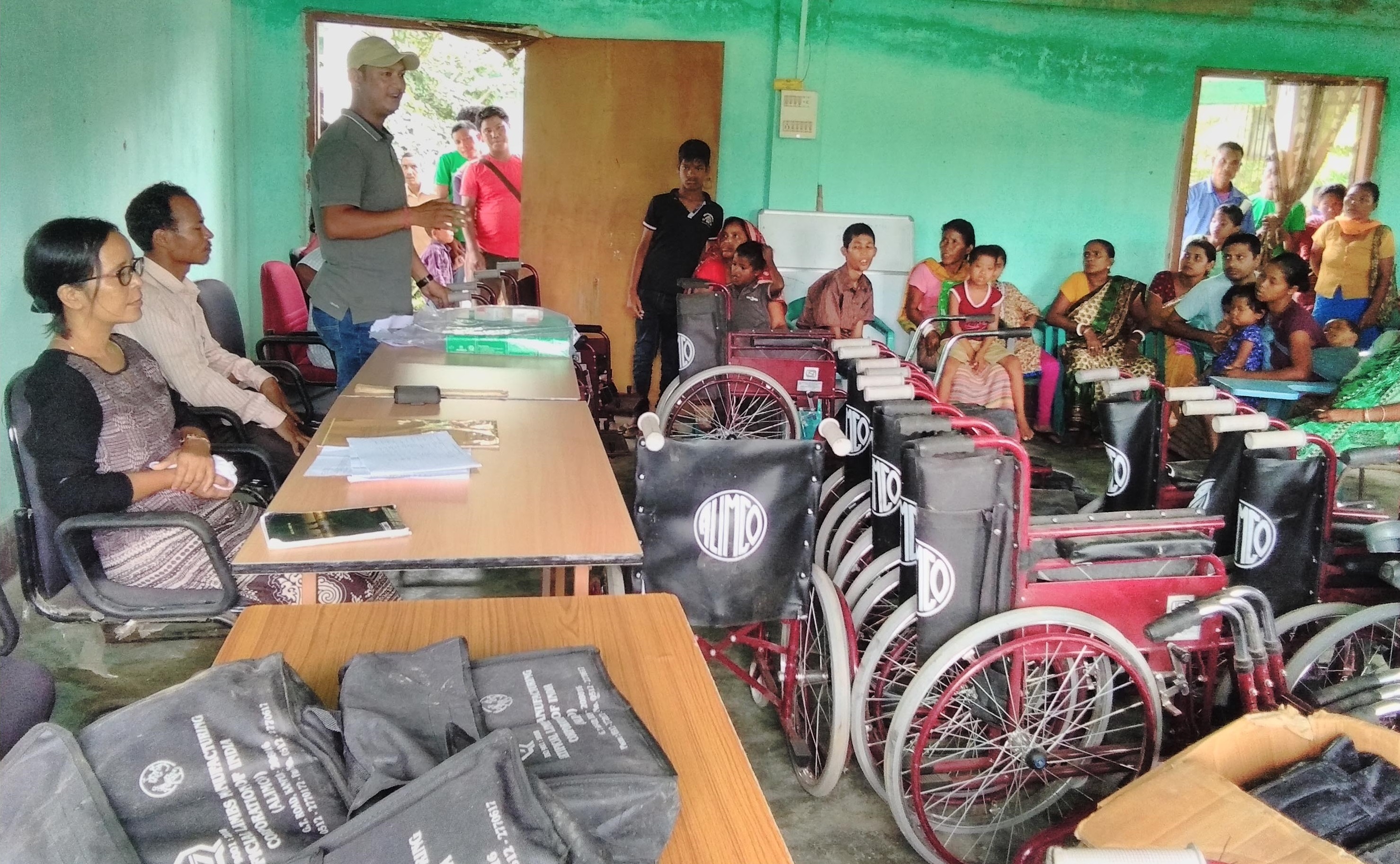- Skip to content
- Screen Reader Access
- Text Size:



The Centrally Sponsored Scheme of SSA of 2001 had set time-bound targets for the achievements of UEE. With “zero rejection’ as its cornerstone, the programme provided support for the inclusion of children with disabilities in general schools at the elementary level. The SSA norms were further strengthened by the RTE Act, 2009 which talks about free and compulsory elementary education to children without any discrimination on the basis of caste, gender, disability etc. While the RTE Act mandates inclusion of CWSN, some may be unable to attend school despite specific interventions designed for their education. The amendment of RTE Act (in August 2012) has included CWSN in the definition of disadvantaged groups. It includes children with severe - multiple disabilities with the right to opt for Home Based Education (HBE), thus creating an enabling environment for all children.
As SSA supported inclusion of children with special needs at the elementary education level, a need was felt for a scheme for the disabled children at secondary stage. The IEDSS scheme was, therefore implemented to enable all children and young persons with disabilities to have access to secondary education and to improve their enrolment, retention and achievement in the general education system. Under the scheme every school was proposed to be made disabled-friendly. The Centrally Sponsored IEDSS Scheme aimed at enabling all students with disabilities completing eight years of elementary schooling an opportunity to complete four years of secondary schooling (classes IX to XII) in an inclusive and enabling environment and provided educational opportunities and facilities to students with disabilities in the general education system at the secondary level (classes IX to XII).
Samagra Shiksha aims to look at education of all children including CWSN in a continuum from pre-school to class XII. The scheme will cover all children with special needs with one or more disabilities as mentioned in the schedule of disabilities of the Right of the Persons with Disabilities (RPwD) Act, 201615 studying in Government, Government-aided and local body schools.

Education of teachers and other stakeholders
Intensive teacher education programme will be undertaken to sensitize and build capacity of the regular teachers and resource teachers on meeting learning needs of all teachers to provide quality education to CWSN and improve their learning outcomes. This teacher education programme will be recurrent at block/cluster levels and integrated with the on-going in-service teacher education/training schedules in DIETs and other Institutions. Teacher education modules at SCERT, DIET and BRC level should include suitable components on education of children with special needs. Training of educational administrators including headmasters, all other staff & relevant personnel of school education should be regularly organized. Special focus should be given on mechanisms for safety and security of children with special needs.
Curricular access
The curriculum is inclusive as envisioned in NCF-2005. It also should ensure that the same curriculum be followed for children with and without special needs, but with adaptations/modifications if required in learning content, teaching learning processes, teaching learning materials/aids and in evaluation, etc. Provision will be made to provide text books and curriculum in accessible formats to CWSN.
Research and Development
The Integrated Scheme will encourage research and development activities in all areas of education of children with special needs including action research, researches to improve learning of CWSN, especially focusing on children with high support needs (Thalassemia, Hemophilia, Sickle Cell disease and Chronic neurological conditions etc), eventually leading to concrete learning outcomes. For this, convergence with different Ministries like Ministry of Health and Family Welfare, MoWCD, Ministry of Social Justice and Empowerment, Ministry of Sports and Youth Affairs, private organizations with Corporate Social Responsibility (CSR) funds etc.